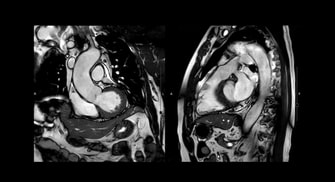Part 4: 3rd & 4th Degree Tears In Childbirth – A Case Study
A recent post regarding the consequences of 3rd and 4th degree perineal tears has caused a lot of mothers to contact me with their own very personal stories of how tears, often left untreated or poorly treated, had brought about huge changes in their lives. Tears occur commonly and with the best of care - but when they arise and are not treated properly it is wrong; it is a failure of care and the avoidable and unnecessary harm that follows can change a woman's life dramatically for the worse. Typical harm caused by such medical negligence includes incontinence, loss of confidence, depression, isolation and loss of enjoyment of intimacy.
I thought therefore it would be helpful to set out the facts of a fairly typical recent case and how we dealt with it leading to a successful outcome in terms of compensation. It is of course the case that the legal work we do is not focused on treatment - but quite often better treatment advice flows from the legal process through access to independent medical experts that we work with on our clients behalf.
Our client, a 27 year old mother of 2 was having difficulty in labour and the obstetrician was present. In the course of delivery, she had a perineal tear. There is no particular explanation for the tear in the notes but tears are a normal event in the course of labour. 95% of first time mothers experience some degree of tear during vaginal delivery. What was interesting about the medical records in this case was that the tear was described as being 2nd Degree – meaning the tear extended to the vaginal lining and some deeper tissues but did not disrupt the anal sphincter muscle which would be a 3rd Degree tear or even a 4th Degree tear if it went further, extending through the rectal lining. Our client’s tear was then repaired by suturing right there in the delivery room by a relatively junior doctor who was working with the obstetric team.
Unfortunately, our client did not make a good recovery. She has a lot of pain in the perineum (that is to say the area between vagina and anus) and shortly after, she noticed problems with urgency when she had a bowel movement and was having problems with soiling of her clothes which was very distressing for her. In the early days and weeks she assumed this was a temporary problem while she recovered from having her baby but with time, while the pain eased somewhat, the urgency and loss of continence continued and even worsened. Her confidence was also being destroyed and she felt unable to go far from a toilet lest she have an accident. She felt bad about herself and bad about what had happened to her. She was also experiencing a lot of pain during intercourse, making physical intimacy with her partner unworkable.
Over the following months and years, our client sought help through the same hospital where her baby was delivered but no interest was taken in her symptoms beyond offering physiotherapy. It was as if this was a normal though unfortunate complication of having a baby and she would just have to put up with it. Eventually however she was examined by a more enlightened doctor who referred her to the specialist unit at the National Rehabilitation Hospital(NRH) in Dun Laoghaire. The NRH has developed an expertise in this area because they work with so many people who suffer paralysis and the same issue of anal sphincter paralysis arises. In the NRH she met for the first time with a specialist surgeon who confirmed that the tear she had suffered originally had been much worse than was noted by the doctors who treated her originally.
I thought therefore it would be helpful to set out the facts of a fairly typical recent case and how we dealt with it leading to a successful outcome in terms of compensation. It is of course the case that the legal work we do is not focused on treatment - but quite often better treatment advice flows from the legal process through access to independent medical experts that we work with on our clients behalf.
Our client, a 27 year old mother of 2 was having difficulty in labour and the obstetrician was present. In the course of delivery, she had a perineal tear. There is no particular explanation for the tear in the notes but tears are a normal event in the course of labour. 95% of first time mothers experience some degree of tear during vaginal delivery. What was interesting about the medical records in this case was that the tear was described as being 2nd Degree – meaning the tear extended to the vaginal lining and some deeper tissues but did not disrupt the anal sphincter muscle which would be a 3rd Degree tear or even a 4th Degree tear if it went further, extending through the rectal lining. Our client’s tear was then repaired by suturing right there in the delivery room by a relatively junior doctor who was working with the obstetric team.
Unfortunately, our client did not make a good recovery. She has a lot of pain in the perineum (that is to say the area between vagina and anus) and shortly after, she noticed problems with urgency when she had a bowel movement and was having problems with soiling of her clothes which was very distressing for her. In the early days and weeks she assumed this was a temporary problem while she recovered from having her baby but with time, while the pain eased somewhat, the urgency and loss of continence continued and even worsened. Her confidence was also being destroyed and she felt unable to go far from a toilet lest she have an accident. She felt bad about herself and bad about what had happened to her. She was also experiencing a lot of pain during intercourse, making physical intimacy with her partner unworkable.
Over the following months and years, our client sought help through the same hospital where her baby was delivered but no interest was taken in her symptoms beyond offering physiotherapy. It was as if this was a normal though unfortunate complication of having a baby and she would just have to put up with it. Eventually however she was examined by a more enlightened doctor who referred her to the specialist unit at the National Rehabilitation Hospital(NRH) in Dun Laoghaire. The NRH has developed an expertise in this area because they work with so many people who suffer paralysis and the same issue of anal sphincter paralysis arises. In the NRH she met for the first time with a specialist surgeon who confirmed that the tear she had suffered originally had been much worse than was noted by the doctors who treated her originally.
|
Examination of her sphincter (the ring of muscle that encircles the area of the anus and is so vital for maintaining continence) revealed that it was offering absolutely no control of her anus.
Some time following this discovery, she contacted our office as she was very angry that for years she had been left untreated with such a debilitating condition. Worse still, she had been told that with such a passage of time, there was no easy fix for her problem and the greatest likelihood was that any improvement now would be modest. For a young woman with a young family, this was terrible news to receive. In common with most of our clients, she first of all wanted answers to about her case and liked the idea that we could take up a copy of her medical records and ask a leading expert in the UK to examine them but also examine her and give a completely unbiased assessment of what had gone wrong and what might now be done to remedy the problem. |
We took these steps and learned from the UK based expert that the tear she had suffered in labour certainly a 3rd degree tear and very likely 4th degree. He said that the failure to realise the extent of the tear was an unacceptably poor standard of care. He also said that such a tear should have been repaired in a surgical theatre, with appropriate surgical lighting and by an experienced surgeon trained in anal sphincter repair – not by a junior in the delivery room. Interestingly he also said that such repairs of complex tears should only be performed under general anaesthetic or epidural because the muscles in the perineum need to be relaxed fully to give the best chance of an even suturing of the various layers of tissue that need to be repaired. Worst of all however, he said that if this was done – as the guidelines for proper obstetric practice require – immediately following the delivery, she would most likely have made a full recovery and gone on to live a normal adult life. Instead she had been left with lifelong faecal incontinence, a disruption of every aspect of her life, work, social, family and sexual – all utterly avoidable but for the carelessness of an unsupervised junior doctor and the fecklessness of the senior doctor who was supposed to supervise him. Add to that was the apparent ‘blind eye’ turned on the obvious negligence by those doctors who examined her over the few years that followed.
I think quite rightly, our client asked us to sue the HSE on her behalf. The HSE don’t defend cases themselves – nor indeed do they pay the compensation or costs. All that falls to the State Claims Agency who are funded through our national pension fund. As I have often said here before, if the HSE had to bear the cost of such cases, they might pay a bit more attention to patient safety but as it is, they and the doctors they employ operate without consequence – in such a system how can we expect anything but a poor standard of care to be incubated!
We carried through with the High Court proceedings and of course with such a strong expert opinion, were successful. The case took about 18 months which is not unusual – people often talk about medical negligence cases taking 5 and 6 years but that is not the experience of our practice. Liability was denied initially by the State but before the case to to come to trial it was settled for approximately €250,000 plus all legal costs. As our practice doesn’t charge a fee from our client, she naturally received 100% of that money. I do not like to use the word ‘compensation’ because so rarely do I see awards of damages coming in any way close to compensating a person for the pain or loss of freedom or loss of enjoyment that such injuries bring. What is usually more important is the sense of proving that they committed a wrong and getting an acknowledgment of that – sometimes even getting them to make their system safer and better for other women.
This case had a lot of features that we see in the majority of perineal tear cases we work on – the lack of interest by doctors, the quick repair of the tear in the delivery room by someone other than a specially trained surgeon, the needless suffering and the long passage of time before our client came to us, well past the normal 2 year Statute of Limitations period and yet we were able to achieve an excellent outcome – at least in legal terms.
I think quite rightly, our client asked us to sue the HSE on her behalf. The HSE don’t defend cases themselves – nor indeed do they pay the compensation or costs. All that falls to the State Claims Agency who are funded through our national pension fund. As I have often said here before, if the HSE had to bear the cost of such cases, they might pay a bit more attention to patient safety but as it is, they and the doctors they employ operate without consequence – in such a system how can we expect anything but a poor standard of care to be incubated!
We carried through with the High Court proceedings and of course with such a strong expert opinion, were successful. The case took about 18 months which is not unusual – people often talk about medical negligence cases taking 5 and 6 years but that is not the experience of our practice. Liability was denied initially by the State but before the case to to come to trial it was settled for approximately €250,000 plus all legal costs. As our practice doesn’t charge a fee from our client, she naturally received 100% of that money. I do not like to use the word ‘compensation’ because so rarely do I see awards of damages coming in any way close to compensating a person for the pain or loss of freedom or loss of enjoyment that such injuries bring. What is usually more important is the sense of proving that they committed a wrong and getting an acknowledgment of that – sometimes even getting them to make their system safer and better for other women.
This case had a lot of features that we see in the majority of perineal tear cases we work on – the lack of interest by doctors, the quick repair of the tear in the delivery room by someone other than a specially trained surgeon, the needless suffering and the long passage of time before our client came to us, well past the normal 2 year Statute of Limitations period and yet we were able to achieve an excellent outcome – at least in legal terms.





